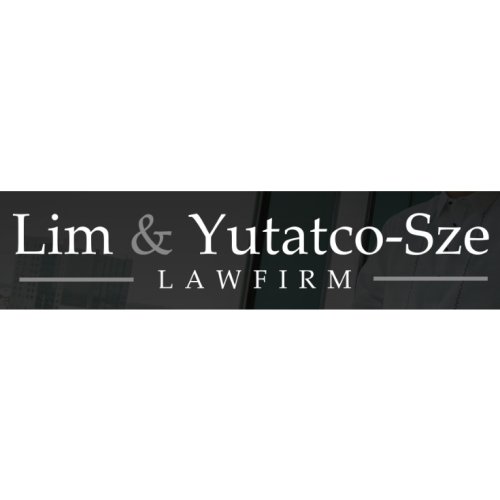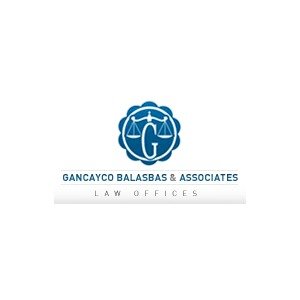Best Structured Finance Lawyers in Manila
Share your needs with us, get contacted by law firms.
Free. Takes 2 min.
List of the best lawyers in Manila, Philippines
About Structured Finance Law in Manila, Philippines
Structured finance refers to complex financial instruments or transactions that are typically designed to address specific financing needs, risk management, or investment criteria that cannot be met with conventional financing. In Manila, Philippines, structured finance plays a vital role in facilitating large-scale corporate financing, infrastructure projects, asset-backed securities, and other sophisticated financial transactions. It involves the use of legal and financial engineering to structure products such as securitizations, project financing, syndicated loans, and hybrid instruments, while ensuring compliance with local regulations and international best practices.
Why You May Need a Lawyer
Structured finance transactions involve significant legal and financial complexities. An experienced lawyer can provide valuable assistance in a variety of situations, such as:
- Advising corporations or financial institutions on asset-backed securities, project finance, or syndicated lending
- Drafting, reviewing, and negotiating complex transaction documents
- Ensuring compliance with relevant banking, securities, and tax laws
- Assessing and managing legal and regulatory risks
- Facilitating cross-border transactions and addressing foreign investment restrictions
- Resolving disputes or defaults related to structured finance transactions
- Advising on restructuring or refinancing of existing finance structures
Given the high-value and risk profile of these transactions, legal counsel is critical for individuals and organizations engaging in structured finance in Manila.
Local Laws Overview
Philippine law governing structured finance is shaped by various statutes and regulatory guidelines issued by sectoral regulators. Key aspects include:
- Banking Laws: The General Banking Law of 2000 and regulations from the Bangko Sentral ng Pilipinas (BSP) set rules for financial institutions engaged in lending, securitization, and other structured products.
- Securities Regulations: The Securities Regulation Code (SRC) and the Philippine Stock Exchange (PSE) oversee the issuance and trading of securities, including asset-backed securities and corporate bonds.
- Tax Considerations: The National Internal Revenue Code (NIRC) covers tax treatment of financial products and transactions, including value-added tax and documentary stamp tax, which often affect structured finance deals.
- Foreign Investment Laws: The Foreign Investments Act and related regulations apply to foreign participation in structured finance transactions, particularly in specific sectors with ownership restrictions.
- Special Purpose Vehicles (SPVs): Republic Act No. 9182 (SPV Act) provides a framework for the creation of entities that acquire or hold financial assets, often utilized in structured finance.
These laws are supplemented by guidelines from the BSP, the Securities and Exchange Commission (SEC), and other regulatory entities, depending on the nature and structure of the finance transaction.
Frequently Asked Questions
What is structured finance?
Structured finance refers to sophisticated financial transactions where complex legal and financial structures are created to manage risks, raise capital, or achieve specific investment goals that standard financing cannot meet.
How does structured finance differ from traditional financing?
Traditional financing typically involves straightforward bank loans or bond issuances. Structured finance, on the other hand, uses customized structures like securitization, project finance, and asset-backed instruments to meet unique requirements or mitigate specific risks.
Who regulates structured finance activities in the Philippines?
Regulators such as the Bangko Sentral ng Pilipinas (BSP) and the Securities and Exchange Commission (SEC) oversee structured finance transactions, depending on whether the products fall under banking or securities regulations.
What are asset-backed securities?
Asset-backed securities (ABS) are financial instruments backed by pools of underlying assets like loans, receivables, or leases. They are commonly used in structured finance to raise funds while spreading risk.
What are common types of structured finance transactions in Manila?
Examples include securitization of receivables, project finance for infrastructure, syndicated loans, structured notes, and hybrid investment instruments.
Are there restrictions on foreign participation in structured finance deals?
Yes, depending on the sector. The Foreign Investments Act and other sector-specific laws may impose restrictions or limitations on the extent of foreign ownership in certain industries.
Can individuals participate in structured finance?
While primarily used by corporations and financial institutions, high net worth individuals may participate as investors or originators, subject to regulatory approval and compliance with securities laws.
What legal documents are involved in structured finance?
Documentation varies by transaction, but common documents include loan agreements, security agreements, trust indentures, offering circulars or prospectuses, and SPV incorporation documents.
What risks are involved in structured finance?
Risks may include credit risk, market risk, legal and regulatory risk, counterparty risk, and tax-related implications. Proper due diligence and legal support are essential to mitigate these risks.
Why is legal counsel important in structured finance?
Legal counsel helps ensure that transactions are compliant with local laws, properly documented, minimize risk exposure, and are structured efficiently to protect the interests of all parties involved.
Additional Resources
For individuals or organizations seeking more information or assistance with structured finance matters in Manila, the following resources can be valuable:
- Bangko Sentral ng Pilipinas (BSP): The central bank oversees banking regulations and compliance for financial institutions.
- Securities and Exchange Commission (SEC): Regulates corporate securities issuance, trading, and disclosure requirements.
- Philippine Stock Exchange (PSE): Provides information on publicly traded securities, including asset-backed instruments.
- Department of Finance (DOF): Handles policy frameworks related to finance, taxation, and investment.
- Law Firms Specializing in Banking and Finance: Many Manila-based law firms have departments or lawyers with expertise in structured finance.
- Industry Associations: Organizations such as the Bankers Association of the Philippines and the Financial Executives Institute of the Philippines offer regulatory updates and networking opportunities.
Next Steps
If you are considering entering into a structured finance transaction, seeking legal assistance is highly recommended. Begin by:
- Assessing your specific needs and objectives for the transaction
- Consulting with a lawyer or legal firm experienced in structured finance to discuss your case
- Gathering all relevant documents and information for a comprehensive evaluation
- Checking the credentials and track record of your chosen legal advisor
- Staying informed about updates in finance regulations and market trends
Taking these steps ensures that your structured finance deals are legally sound, efficient, and compliant with Manila’s regulations, helping you achieve your financial or business goals with confidence.
Lawzana helps you find the best lawyers and law firms in Manila through a curated and pre-screened list of qualified legal professionals. Our platform offers rankings and detailed profiles of attorneys and law firms, allowing you to compare based on practice areas, including Structured Finance, experience, and client feedback.
Each profile includes a description of the firm's areas of practice, client reviews, team members and partners, year of establishment, spoken languages, office locations, contact information, social media presence, and any published articles or resources. Most firms on our platform speak English and are experienced in both local and international legal matters.
Get a quote from top-rated law firms in Manila, Philippines — quickly, securely, and without unnecessary hassle.
Disclaimer:
The information provided on this page is for general informational purposes only and does not constitute legal advice. While we strive to ensure the accuracy and relevance of the content, legal information may change over time, and interpretations of the law can vary. You should always consult with a qualified legal professional for advice specific to your situation.
We disclaim all liability for actions taken or not taken based on the content of this page. If you believe any information is incorrect or outdated, please contact us, and we will review and update it where appropriate.

















